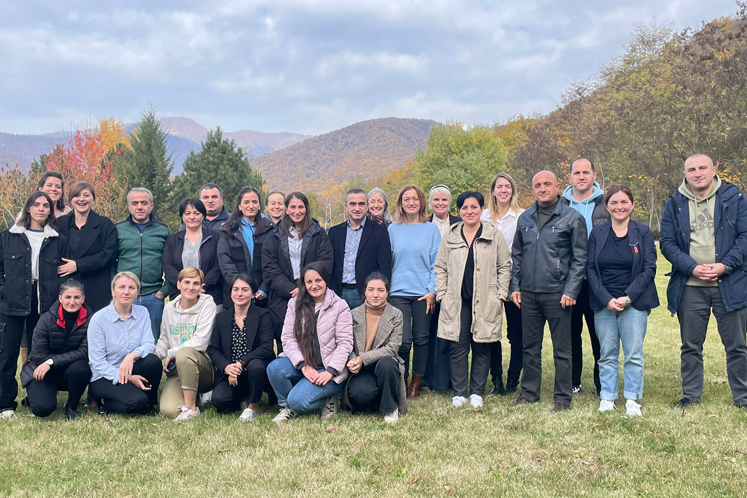Strength through unity: the power of networking for women in security forces
We all face obstacles, and have the need for support and encouragement in our professional lives, but sometimes it’s hard to reach out for help. Women in the armed forces are no exception. Working in male-dominated environments means that they are more likely than most to face additional professional challenges due to gender stereotypes about what women can, and can’t do.
Since women’s full participation at all levels in the defense sector is necessary to promote gender equality and enhanced military effectiveness, efforts to recruit, retain and promote women are fundamental for success.
One of these efforts - creating special networks among women - has proven to be an excellent method to support women and encourage their progression and promotion to leadership roles. Successful networking isn't just about connecting with people on a personal level; it's about building a community to share experiences and ideas, shape collective thinking, solve problems, and create opportunities for each other.
THE GEORGIAN WOMEN’S LEADERSHIP PROGRAMME

Georgian participants at a workshop to develop the expertise of the members of the women’s
leadership programme in November 2022. Photo: DCAF
Since 2020, DCAF and UN Women have supported the Georgian Ministry of Defence to create its Women in Defence programme, with the goal of paving the way for more female leaders in the country’s national defence forces. One of the key elements of the programme has been the establishment of a network to strengthen women’s capacities and develop their full potential.
It began with focus groups and interviews to learn first-hand from women what opportunities they had, the challenges they’d faced, and what they felt was needed to support their career advancement.
Examples of women’s networks in other security sector institutions were shared in a workshop with women in uniform from across ranks and functions, as well as civilian women from the Ministry of Defence (MOD), and senior male leaders from the MOD and the Georgian Defense Forces.
Participants discussed how to adapt these models to the local context and the “Women’s Leadership Programme” was set up shortly after, engaging the same cohort of participants over seven months through regular online and in-person sessions. Through the months participants learned theory of gender psychology and gender bias, as well as practical leadership and mentoring skills.
The programme also facilitated dialogue among officials of different ranks and areas in the organization and these honest conversations blossomed into a network of women who came together to help break barriers and support one another’s growth and success.
I felt a strong desire to share my own experiences with the newcomers, helping them navigate potential obstacles more smoothly than I did. We were seen as seasoned and experienced women role models within the system. Conversations and relationships among participants often led to solutions, and these informal discussions were particularly interesting and productive. - Female Lieutenant Colonel
Thanks to the leadership programme and the network it created, the women better understood the concepts of gender equality and became more aware of the obstacles – some visible, some invisible - that had prevented them from growing professionally.
They realized their own gender biases and thought about what they could change in their behavior, as well as how to help change collective attitudes. They recognized their shared experiences and how to help each other, including through collective action. In addition to new skills, participants developed their confidence, self-esteem, and a sense of empowerment.
When I became a participant in this project, I met like-minded people and I saw that if someone were to follow in my footsteps, their path would already be paved and no one would tell them that it is not a woman's job. - Female Corporal
WHAT MAKES A SUCCESSFUL NETWORK
There isn’t one model for a women’s network; each one should be tailored to the context and institutional culture in which it operates. However, these key elements can help guarantee success:
- Ensure that women from all ranks can join in order to address the challenges, needs, and opportunities at all levels of the organization.
- Depending on the context, encourage men to join the network and engage them as allies and agents of change, and recruit senior male leaders to serve as mentors.
- Define a vision with clear aims and objectives to build the network’s credibility, sustainability, and effectiveness.
- Continually spread the word about the network so everyone has the chance to join if they are interested.
- Find ways to ensure sustainability; a network can be registered as a professional association, a civil society organization, or established as an internal body of the security institution.

To learn more about our work in Georgia, watch Changing mindsets for gender equal security institutions.
 Share on Facebook
Share on Facebook Share on Linkedin
Share on Linkedin Share on Twitter
Share on Twitter